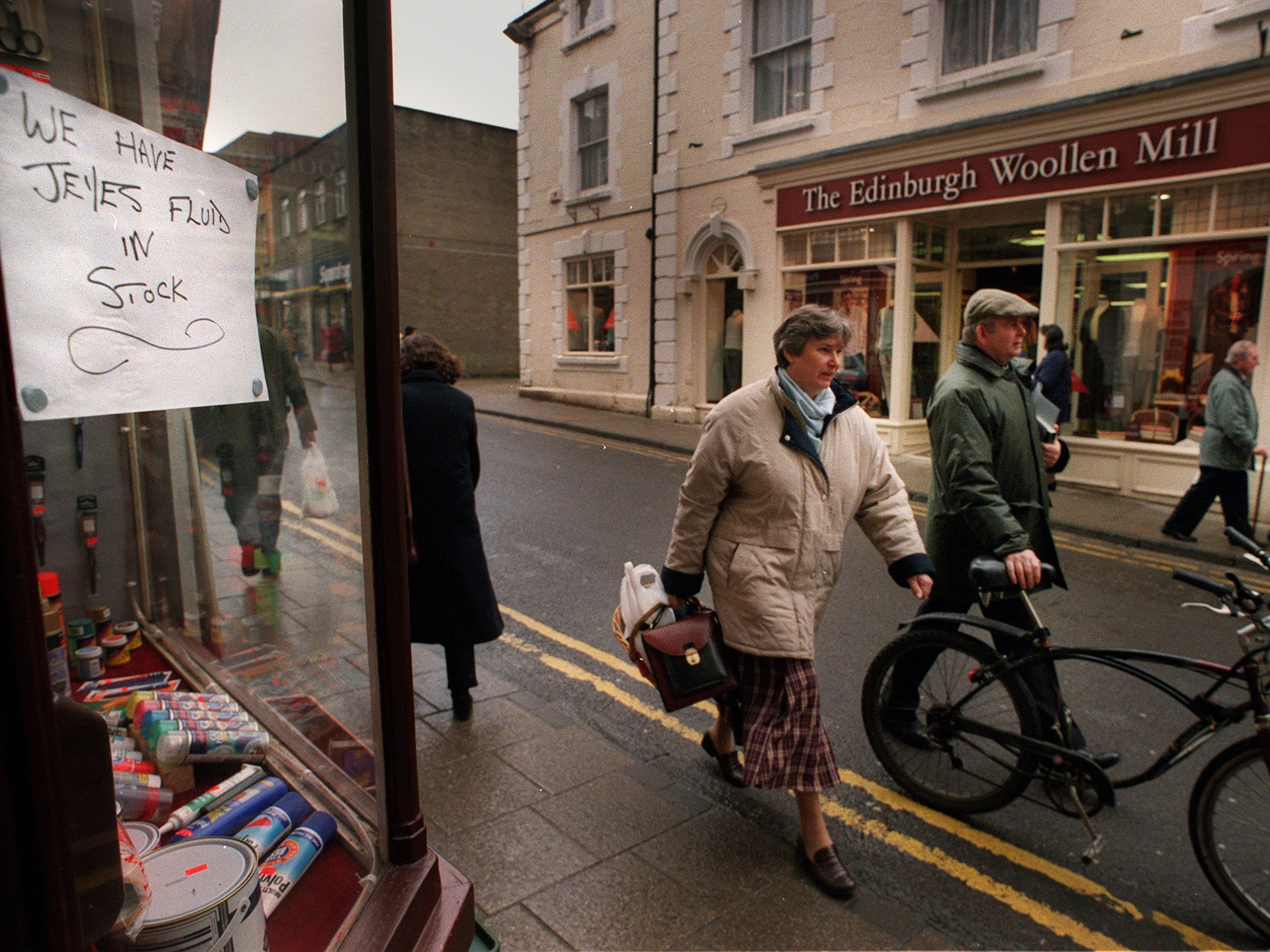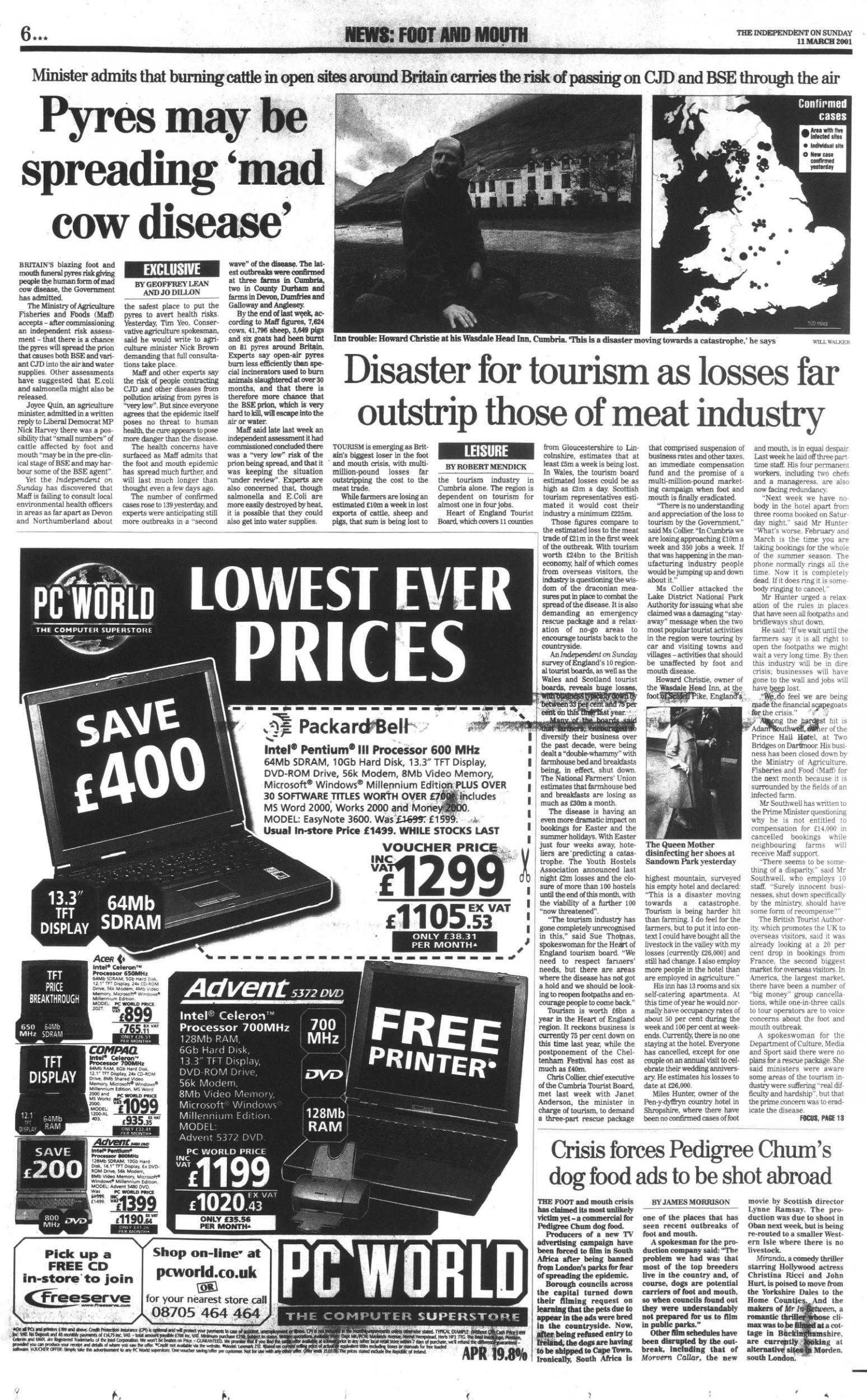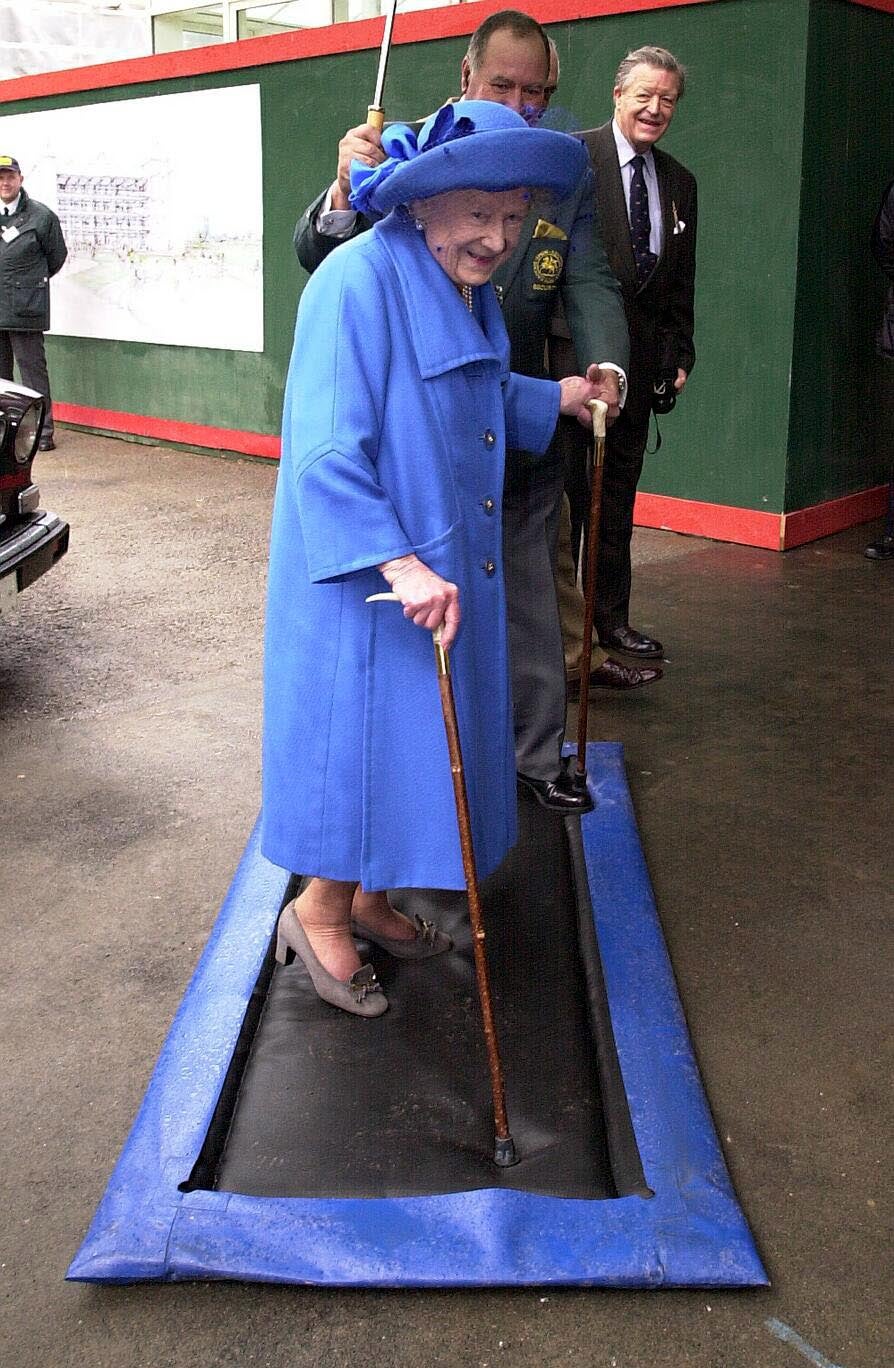How foot-and-mouth was a disaster for British tourism
With tourism worth £24bn, the industry questioned the wisdom of the draconian measures put in place to combat the spread of the disease. Robert Mendick reports

Tourism is emerging as Britain’s biggest loser in the foot-and-mouth crisis, with multimillion-pound losses far outstripping the cost to the meat trade. While farmers are losing an estimated £10m a week in lost exports of cattle, sheep and pigs, that sum is being lost to the tourism industry in Cumbria alone. The region is dependent on tourism for almost one in four jobs.
Heart of England tourism board, which covers 11 counties from Gloucestershire to Lincolnshire, estimates that at least £5m a week is being lost. In Wales, the tourism board estimated losses could be as high as £3m a day. Scottish tourism representatives estimated it would cost their industry a minimum £225m.
Those figures compare to the estimated loss to the meat trade of £21m in the first week of the outbreak. With tourism worth £24bn to the British economy, half of which comes from overseas visitors, the industry is questioning the wisdom of the draconian measures put in place to combat the spread of the disease. It is also demanding an emergency rescue package and a relaxation of no-go areas to encourage tourists back to the countryside.
An Independent on Sunday survey of England’s 10 regional tourist boards, as well as the Wales and Scotland tourist boards, reveals huge losses, with business typically down by between 33 per cent and 75 per cent on this time last year.
Many of the boards said that farmers, encouraged to diversify their business over the past decade, were being dealt a “double whammy” with farmhouse bed and breakfasts being, in effect, shut down. The National Farmers’ Union estimates that farmhouse bed and breakfasts are losing as much as £30m a month.
The disease is having an even more dramatic impact on bookings for Easter and the summer holidays. With Easter just four weeks away, hoteliers are predicting a catastrophe. The Youth Hostels Association announced last night £2m losses and the closure of more than 100 hostels until the end of this month, with the viability of a further 100 “now threatened”.
The pyres created more pollution than all the factories in Britain – read part seven here
“The tourism industry has gone completely unrecognised in this,” said Sue Thomas, spokeswoman for the Heart of England tourism board. “We need to respect farmers’ needs, but there are areas where the disease has not got a hold and we should be looking to reopen footpaths and encourage people to come back.”
Tourism is worth £6bn a year in the Heart of England region. It reckons business is currently 75 per cent down on this time last year, while the postponement of the Cheltenham Festival has cost as much as £40m.

Chris Collier, chief executive of the Cumbria tourist board, met last week with Janet Anderson, the minister in charge of tourism, to demand a three-part rescue package that comprised suspension of business rates and other taxes, an immediate compensation fund and the promise of a multimillion-pound marketing campaign when foot-and-mouth is finally eradicated.
“There is no understanding and appreciation of the loss to tourism by the government,” said Ms Collier. “In Cumbria we are losing approaching £10m a week and 350 jobs a week. If that was happening in the manufacturing industry people would be jumping up and down about it.”
Ms Collier attacked the Lake District National Park Authority for issuing what she claimed was a damaging “stay-away” message when the two most popular tourist activities in the region were touring by car and visiting towns and village – activities that should be unaffected by foot-and-mouth disease.
Howard Christie, owner of the Wasdale Head Inn, at the foot of Scafell Pike, England’s highest mountain, surveyed his empty hotel and declared: “This is a disaster moving towards a catastrophe. Tourism is being harder hit than farming. I do feel for the farmers, but to put it into context I could have bought all the livestock in the valley with my losses (currently £26,000) and still had change. I also employ more people in the hotel than are employed in agriculture.”
His inn has 13 rooms and six self-catering apartments. At this time of year he would normally have occupancy rates of about 50 per cent during the week and 100 per cent at weekends. Currently, there is no one staying at the hotel. Everyone has cancelled, except for one couple on an annual visit to celebrate their wedding anniversary. He estimates his losses to date at £26,000.

Miles Hunter, owner of the Pen-y-Dyffryn country hotel in Shropshire, where there have been no confirmed cases of foot-and-mouth, is in equal despair. Last week he laid off three part-time staff. His four permanent workers, including two chefs and a manager, are also now facing redundancy.
“Next week we have nobody in the hotel apart from three rooms booked on Saturday night,” said Mr Hunter. “What’s worse, February and March is the time you are taking bookings for the whole of the summer season. The phone normally rings all the time. Now it is completely dead. If it does ring it is somebody ringing to cancel.”
Mr Hunter urged a relaxation of the rules in places that have seen all footpaths and bridleways shut down.
He said: “If we wait until the farmers say it is all right to open the footpaths we might wait a very long time. By then this industry will be in dire crisis; businesses will have gone to the wall and jobs will have been lost.
“We do feel we are being made the financial scapegoats for the crisis.”
Among the hardest hit is Adam Southwell, owner of the Prince Hall Hotel, at Two Bridges on Dartmoor. His business has been closed down by the Ministry of Agriculture, Fisheries and Food (Maff) for the next month because it is surrounded by the fields of an infected farm.
Mr Southwell has written to the prime minister questioning why he is not entitled to compensation for £14,000 in cancelled bookings while neighbouring farms will receive Maff support.

“There seems to be something of a disparity,” said Mr Southwell, who employs 10 staff. “Surely innocent businesses, shut down specifically by the ministry, should have some form of recompense?”
The British Tourist Authority, which promotes the UK to overseas visitors, said it was already looking at a 20 per cent drop in bookings from France, the second biggest market for overseas visitors. In America, the largest market, there have been a number of “big money” group cancellations, while one in three calls to tour operators are to voice concerns about the foot and mouth outbreak.
A spokeswoman for the Department of Culture, Media and Sport said there were no plans for a rescue package. She said ministers were aware some areas of the tourism industry were suffering “real difficulty and hardship”, but that the prime concern was to eradicate the disease.
This article first appeared in The Independent on 11 March 2001
Join our commenting forum
Join thought-provoking conversations, follow other Independent readers and see their replies
Comments
Bookmark popover
Removed from bookmarks